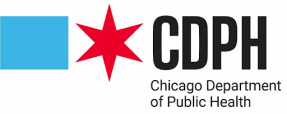Healthcare Access Programs


Healthcare Access is a component of the CDPH HIV/STI Bureau’s Community Health Services Division, a collection of services that work together to reduce HIV infections and increase quality of life for those living with and vulnerable to HIV in the Chicago Eligible Metropolitan Area (EMA). This portfolio of services falls in line with the two primary goals outlined in the Illinois Getting to Zero plan:
- Increase by 20 percentage points the number of people living with HIV who are virally suppressed.
- Increase by 20 percentage points the number of people vulnerable to HIV infection who use HIV PrEP.
Healthcare Access contains the following programs:
| Program | Services |
|---|---|
| Population Centered Health Homes |
Additional Services:
|
| Essential Support Services |
Additional Services:
|
| HIV Primary Care |
Additional Services:
|
| HIV Screening in Healthcare Settings | HIV Screening and Linkage |
| Medical Case Management | Medical Case Management |
| Other Professional Services: Legal | Legal Services and Income Tax Preparation |
| Food Bank and Home-Delivered Meals | Food Bank and Home Delivered Meals |
| Emergency Financial Assistance, Housing, and Medical Transportation | Emergency Financial Assistance, Ryan White Part A Transitional Housing, and Medical Transportation |
Funding for Healthcare Access programs comes from the following sources:
- Health Resources and Services Administration (HRSA): Ryan White Part A
- Centers for Disease Control (CDC): HIV Prevention & STD Prevention
- Illinois Department of Public Health: HIV Prevention
- City of Chicago
All Healthcare Access programs operate as payer of last resort, providing care to clients that are not able to access clinical or essential supportive services because they are under-insured or uninsured.
Our geographic service area, the Chicago EMA, consists of nine counties. These counties include Cook, DeKalb, DuPage, Will, Grundy, McHenry, Lake, Kane, and Kendall.
CDPH also works collaboratively with the Chicago Area HIV Integrated Services Council (CAHISC) to determine needs and set funding priorities. The Planning Council consists of 45+ members who are community members, provider representatives, and consumers. Each year the Planning Council conducts a needs assessment to identify unmet needs, gaps in services, and barriers to care. The recommendations from the needs assessment process are used to inform the priority setting process which is also conducted on an annual basis.
Service Delivery Guidance Documents
HIV care-related service categories are funded through the HRSA Ryan White Part A and MAI. Agencies funded to deliver these services must comply with the Chicago EMA’s local Ryan White Part A Standards of Care.




